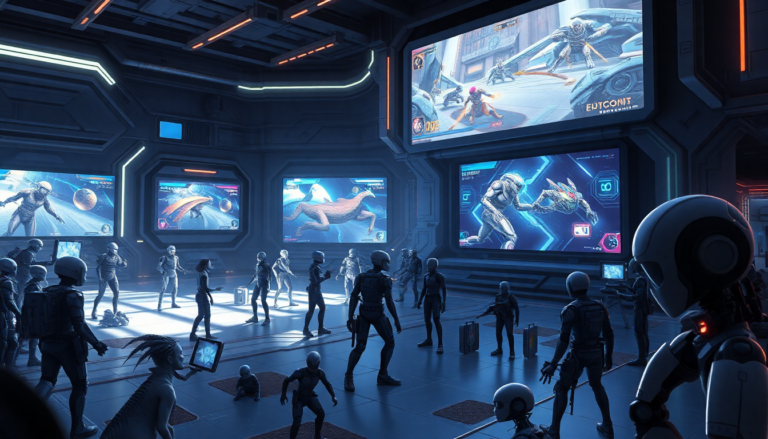Argomenti trattati
The journey of AI in gaming
Artificial Intelligence (AI) has become an integral part of the gaming industry, evolving from simple programmed behaviors to complex algorithms that enhance player experiences. Early games like Pac-Man showcased primitive AI, where colored ghosts exhibited distinct behaviors that made them appear almost sentient. These simple yet effective designs laid the groundwork for more sophisticated AI systems in contemporary games.
As technology advanced, so did the capabilities of AI in gaming. In modern titles like Middle Earth: Shadow of War, AI allows for the creation of dynamic characters that can remember past interactions, creating a more immersive and personalized gameplay experience. This evolution has redefined how players interact with the game world, making each session unique and engaging.
Understanding AI’s role in gameplay
Artificial intelligence in video games serves to make virtual environments feel alive and reactive. By programming non-playable characters (NPCs) to respond to player actions in real-time, developers can craft a more compelling narrative and gameplay experience. For instance, in Pac-Man, each ghost was programmed with distinct behaviors—some chased Pac-Man, while others ambushed him strategically.
These behaviors, although rudimentary by today’s standards, created a sense of challenge and engagement. Fast forward to contemporary gaming, where AI not only reacts to player actions but also learns from them. This adaptability enables NPCs to exhibit complex personalities and emotional responses, enhancing immersion.
The future of AI in gaming
Looking ahead, the potential of AI in gaming is boundless. With advancements in machine learning and neural networks, future games could feature NPCs that not only simulate human-like intelligence but also possess emotional depth. Imagine a game where characters remember your past decisions and react accordingly, creating a more profound connection between the player and the game world.
Moreover, AI has the potential to automate game development processes, allowing developers to focus on creative aspects rather than repetitive tasks. Procedural content generation—where AI algorithms create game levels and environments—could lead to richer and more varied gaming experiences. Games could evolve in real-time based on player interactions, providing a fresh experience with each playthrough.
Challenges and considerations
While the advancements in AI present exciting opportunities, they also pose significant challenges. As AI systems grow more sophisticated, there is a risk that developers may lose control over the narrative and gameplay experience. The unpredictability of AI could lead to unforeseen bugs or glitches, impacting player enjoyment.
Furthermore, the ethical implications of AI in gaming warrant careful consideration. As NPCs become more lifelike, the line between reality and virtuality may blur, raising questions about player agency and the consequences of in-game actions. Will players find enjoyment in a world where every action has a realistic consequence?
AI’s impact on game design
AI is revolutionizing not just gameplay but also the process of game design itself. With AI-driven tools, developers can achieve a level of detail and complexity that would be unfeasible through traditional methods. For instance, advanced AI algorithms can enhance graphics, create realistic character animations, and even design intricate storylines that adapt to player choices.
As a result, gaming companies are investing heavily in AI technologies, with the market projected to reach approximately $314 billion by 2026. Startups focusing on AI-generated storytelling and gameplay mechanics are emerging, reflecting the growing interest in AI’s capabilities within the industry.
The balance of control and creativity
As AI plays a more significant role in game development, striking a balance between technological innovation and creative direction will be essential. Developers must ensure that while AI enhances gameplay, it does not overshadow the artistic vision behind a game. The goal is to create games that not only challenge players but also tell compelling stories and evoke genuine emotions.
In conclusion, artificial intelligence is at the forefront of transforming the gaming industry. From enhancing gameplay to streamlining development processes, AI is reshaping how games are created and experienced. As we continue to explore the possibilities of AI in gaming, we look forward to a future where virtual worlds become increasingly immersive and responsive to player actions. Stay tuned as we navigate this exciting frontier!

